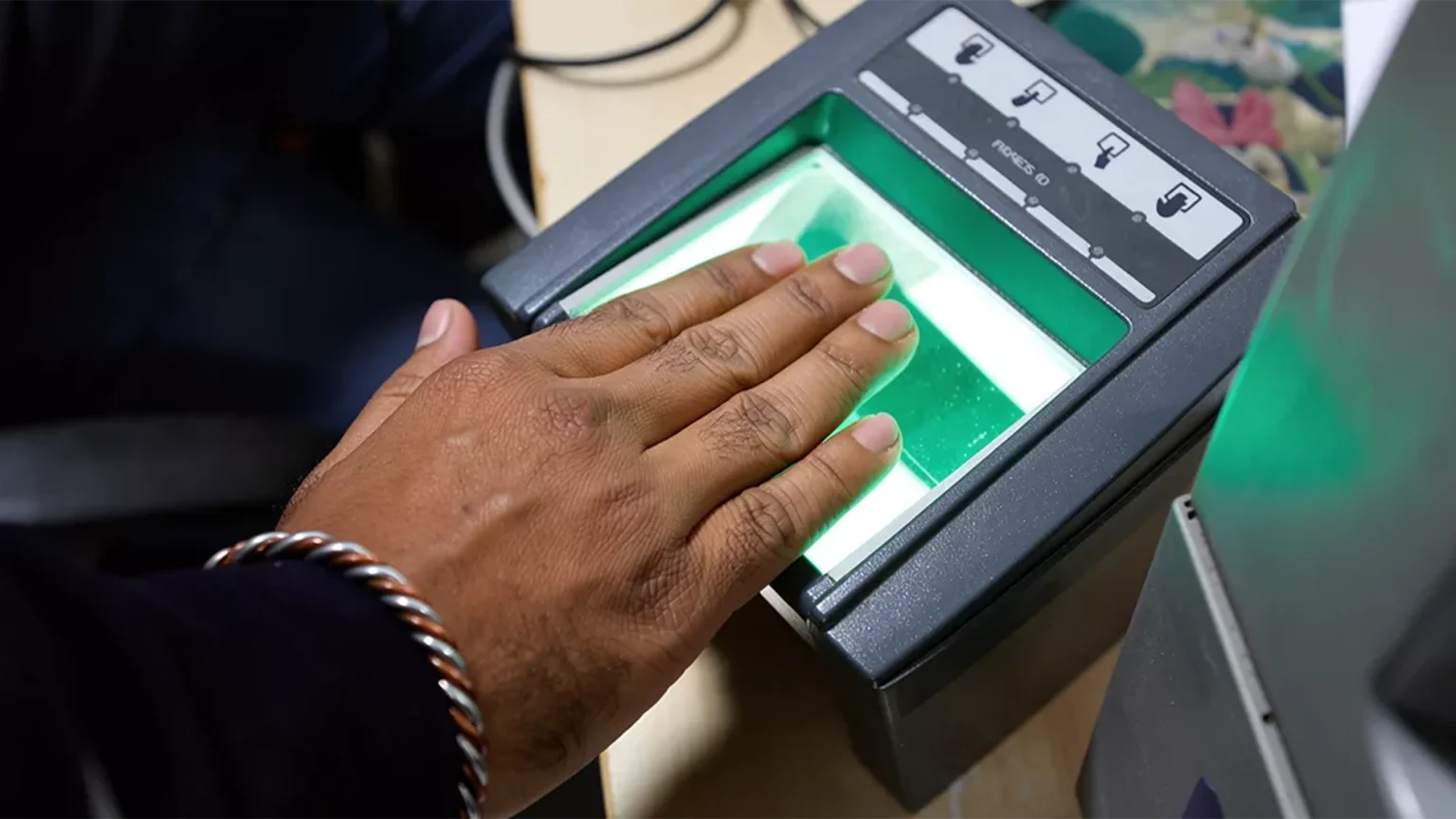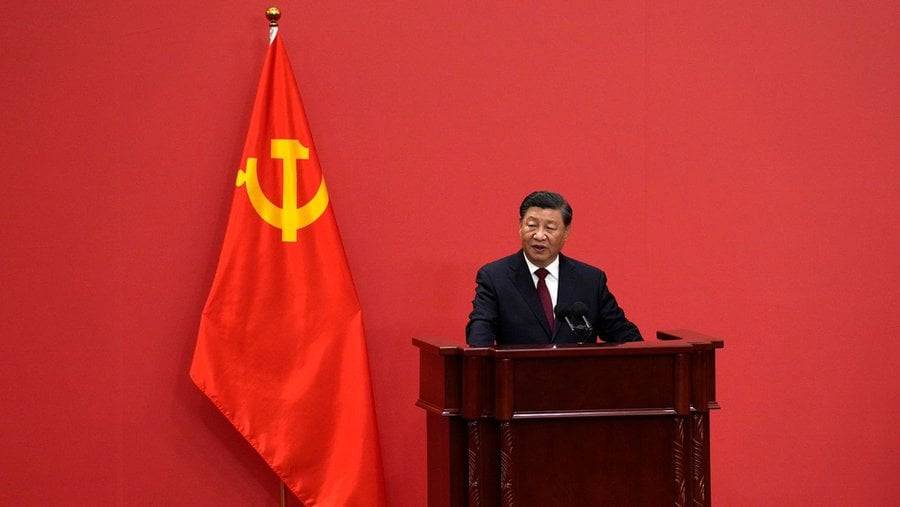A federal judge agreed Thursday to issue a new nationwide block against President Donald Trump’s executive order seeking to end birthright citizenship.
The ruling from US District Judge Joseph Laplante is significant because the Supreme Court last month curbed the power of lower court judges to issue nationwide injunctions, while keeping intact the ability of plaintiffs to seek a widespread block of the order through class action lawsuits, which is what happened Thursday in New Hampshire.
Ruling from the bench, Laplante granted a request from immigration rights attorneys to certify a nationwide class that “will be comprised only of those deprived of citizenship” and issued a preliminary injunction indefinitely blocking Trump’s Day One order from being enforced against any baby born after February 20.
Protesters rally in support of detained Palestinian activist Mahmoud Khalil in March in New York.
“The preliminary injunction is just not a close call to the court,” Laplante said during a hearing. “The deprivation of US citizenship and an abrupt change of policy that was longstanding … that’s irreparable harm.”
US citizenship, the judge added, “is the greatest privilege that exists in the world.”
The judge, an appointee of former President George W. Bush, said he would pause his order for several days to give the Trump administration time to appeal his decision.
Laplante issued a written 38-page order later Thursday as well.
Laplante wrote that he “has no difficulty concluding that the rapid adoption by executive order, without legislation and the attending national debate, of a new government policy of highly questionable constitutionality that would deny citizenship to many thousands of individuals previously granted citizenship under an indisputably longstanding policy, constitutes irreparable harm, and that all class representatives could suffer irreparable harm absent an injunction.”
Laplante’s ruling could prove to be a critical bulwark against Trump’s policy as other courts scramble to take a second look at their decisions in light of the Supreme Court’s ruling.
The White House called the ruling “an obvious and unlawful attempt to circumvent the Supreme Court’s clear order against universal relief.”
“This judge’s decision disregards the rule of law by abusing class action certification procedures. The Trump Administration will be fighting vigorously against the attempts of these rogue district court judges to impede the policies President Trump was elected to implement,” White House spokesman Harrison Fields said in a statement.
In February, Laplante indefinitely blocked the Trump administration from enforcing the order only against members of several nonprofit groups who would have been impacted by it.
“I’m the judge who wasn’t comfortable with issuing a nationwide injunction. Class action is different,” the judge said at one point during Thursday’s hearing. “The Supreme Court suggested class action is a better option.”
In his ruling earlier this year, Laplante said Trump’s order “contradicts the text of the Fourteenth Amendment and the century-old untouched precedent that interprets it.”
Several other judges similarly ruled that Trump’s order was unconstitutional, but their injunctions applied nationwide and prompted the administration to mount the series of appeals that eventually landed before the Supreme Court.
Thursday’s proceeding focused largely on the request from immigration rights attorneys who brought the legal challenge for Laplante to certify a class of individuals that would include “all current and future children” who would be affected by Trump’s order and their parents. The judge’s ruling Thursday did not include the parents in the class.
The judge appeared sympathetic to arguments pushed by the Justice Department that certifying a class including the parents might run up against the federal rules regarding class certification if those adults each had immigration situations that were significantly different from another adult in the class.
DOJ attorney Eric Hamilton had wanted Laplante to allow for discovery so more information could be gathered on the adults who are part of the legal challenge, but the judge, aware of the urgency of the litigation, noted that such court-ordered fact-finding wouldn’t be feasible.
“You’re right, (ordinarily) we’d conduct discovery before granting class certification,” Laplante said. “There’s no time for discovery.” His decision to keep the certified class somewhat narrow allows the case to proceed without that time-consuming process.
“I think that the class representatives present issues … that the newborn infants do not,” he said.
Class action lawsuits require “class representatives,” or individuals who, if the class is certified, will represent the class members.
In this case, brought by the American Civil Liberties Union, those proposed representatives had included a Honduran asylum-seeker – referred to in court papers as “Barbara” and who is living in New Hampshire and expecting a baby in October – and a Brazilian man – referred to as “Mark” – who is attempting to get lawful permanent status. Mark’s wife, who is not in the US lawfully, gave birth in March.
“If the Order is left in place,” the ACLU lawyers wrote, “those children will face numerous obstacles to life in the United States, including stigma and potential statelessness; loss of their right to vote, serve on federal juries and in many elected offices, and work in various federal jobs; ineligibility for various federal programs; and potential arrest, detention, and deportation to countries they may have never even seen.”
Chief Justice John Roberts and Associate Justice Amy Coney Barrett.
Signed by Trump on January 20, the executive order, titled “PROTECTING THE MEANING AND VALUE OF AMERICAN CITIZENSHIP,” said that the federal government will not “issue documents recognizing United States citizenship” to any children born on American soil to parents who were in the country unlawfully or were in the states lawfully but temporarily.
The Supreme Court said in its June 27 ruling that the administration cannot begin enforcing the order for 30 days, though the government is allowed to begin developing guidance on how the policy will be implemented.
In the other challenges to Trump’s order, lower courts around the country have asked the parties to submit written legal arguments addressing how the Supreme Court’s ruling could impact the nationwide injunctions issued in those cases, and more court proceedings are expected in the coming days and weeks.
But that process will take time and it’s unclear whether any of those courts will narrow their injunctions ahead of when Trump is permitted to enforce the birthright policy.
“I feel like we’re the only people who rushed around here,” Laplante quipped during Thursday’s hearing.
ACLU attorney Cody Wofsy in a statement said the judge’s decision is “a huge victory and will help protect the citizenship of all children born in the United States, as the Constitution intended.”
What the Supreme Court said
Laplante’s decision aligns with the Supreme Court’s blockbuster ruling last month, which left class-action litigation on the table as a way to block Trump’s birthright citizenship order – and potentially other policies.
The Supreme Court’s decision was focused on one type of court order – a nationwide injunction – but several of the justices were keen to note that plaintiffs suing an administration would have other avenues to shut down policies that might run afoul of the Constitution or federal law. Writing for the majority, Justice Amy Coney Barrett suggested the kind of class-action litigation immigrant rights groups are now pursuing have many advantages.
Justice Brett Kavanaugh, a conservative who is often closer to the center of the court in high-profile cases, seemed especially open to having the Supreme Court review, on an emergency basis, exactly the kind of order Laplante issued.
“Today’s decision on district court injunctions will not affect this court’s vitally important responsibility to resolve applications for stays or injunctions with respect to major new federal statutes and executive actions,” Kavanaugh wrote. “Deciding those applications is not a distraction from our job. It is a critical part of our job.”
Perhaps, Kavanaugh mused, a district court might issue “the functional equivalent of a universal injunction” by “granting or denying a preliminary injunction” in a class-action suit.
“No matter how the preliminary-injunction litigation on those kinds of significant matters transpires in the district courts, the courts of appeals in turn will undoubtedly be called upon to promptly grant or deny temporary stays or temporary injunctions in many cases,” Kavanaugh wrote.
But Laplante’s ruling is nevertheless almost certain to force the justices to deal with a split that emerged over the particulars of those cases. And the court’s majority opinion left that split unsettled.
Several conservatives, including Justices Samuel Alito and Clarence Thomas, warned against courts using class-action litigation to essentially supplant the kind of nationwide injunction the court had just shot down.
“Lax enforcement of the requirements” for certifying a class, Alito wrote in an opinion joined by Thomas, “would create a potentially significant loophole to today’s decision.”
Federal courts, he added, “should thus be vigilant against such potential abuses of these tools.”
Whether Laplante’s decision is an “abuse” or exactly what the Supreme Court had in mind will likely wind up back before the justices in short order.
CNN














